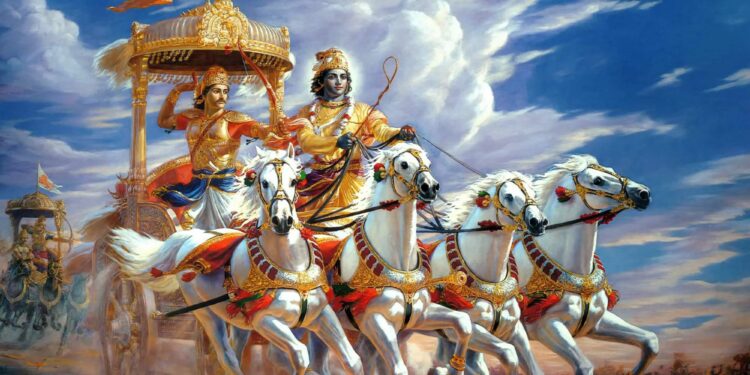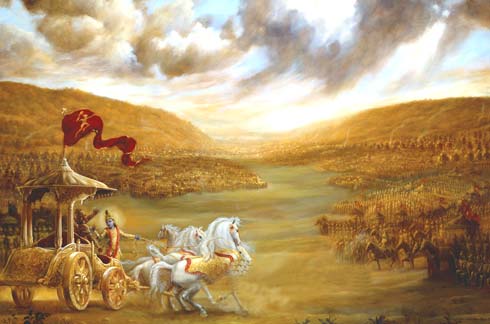Attaining The Spiritual World
The Lord suggests that we attain the spiritual world in the following manner (Bg. 15.5):
nirmāna-mohā jita-saṅga-doṣā
adhyātma-nityā vinivṛtta-kāmāḥ
dvandvair vimuktāḥ sukha-duḥkha-saṁjñair
gacchanty amūḍhāḥ padam avyayaṁ tat
That padam avyayam, or eternal kingdom, can be reached by one who is nirmāna-moha. What does this mean? We are after designations. Someone wants to become “sir,” someone wants to become “lord,” someone wants to become the president or a rich man or a king or something else. As long as we are attached to these designations, we are attached to the body, because designations belong to the body. But we are not these bodies, and realizing this is the first stage in spiritual realization. We are associated with the three modes of material nature, but we must become detached through devotional service to the Lord. If we are not attached to devotional service to the Lord, then we cannot become detached from the modes of material nature. Designations and attachments are due to our lust and desire, our wanting to lord it over the material nature. As long as we do not give up this propensity of lording it over material nature, there is no possibility of returning to the kingdom of the Supreme, the sanātana-dhāma. That eternal kingdom, which is never destroyed, can be approached by one who is not bewildered by the attractions of false material enjoyments, who is situated in the service of the Supreme Lord. One so situated can easily approach that supreme abode.
Elsewhere in the Gītā (8.21) it is stated:
avyakto ‘kṣara ity uktas
tam āhuḥ paramāṁ gatim
yaṁ prāpya na nivartante
tad dhāma paramaṁ mama
Avyakta means unmanifested. Not even all of the material world is manifested before us. Our senses are so imperfect that we cannot even see all of the stars within this material universe. In Vedic literature we can receive much information about all the planets, and we can believe it or not believe it. All of the important planets are described in Vedic literatures, especially Śrīmad-Bhāgavatam, and the spiritual world, which is beyond this material sky, is described as avyakta, unmanifested. One should desire and hanker after that supreme kingdom, for when one attains that kingdom, he does not have to return to this material world.
Next, one may raise the question of how one goes about approaching that abode of the Supreme Lord. Information of this is given in the Eighth Chapter. It is said there:
anta-kāle ca mām eva
smaran muktvā kalevaram
yaḥ prayāti sa mad-bhāvaṁ
yāti nāsty atra saṁśayaḥ
“And whoever, at the end of his life, quits his body, remembering Me, attains immediately to My nature; and there is no doubt of this.” [Bg. 8.5] One who thinks of Kṛṣṇa at the time of his death goes to Kṛṣṇa. One must remember the form of Kṛṣṇa; if he quits his body thinking of this form, he surely approaches the spiritual kingdom. Mad-bhāvam refers to the supreme nature of the Supreme Being. The Supreme Being is sac-cid-ānanda-vigraha [Bs. 5.1]—that is, His form is eternal, full of knowledge and bliss. Our present body is not sac-cid-ānanda. It is asat, not sat. It is not eternal; it is perishable. It is not cit, full of knowledge, but it is full of ignorance. We have no knowledge of the spiritual kingdom, nor do we even have perfect knowledge of this material world, where there are so many things unknown to us. The body is also nirānanda; instead of being full of bliss it is full of misery. All of the miseries we experience in the material world arise from the body, but one who leaves this body thinking of Lord Kṛṣṇa, the Supreme Personality of Godhead, at once attains a sac-cid-ānanda body.

















